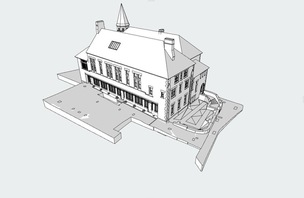TENS of thousands of Barnsley residents are hooked on prescription drugs including high-strength painkillers and antidepressants, shock new figures show.
Government figures show more than 58,000 people were prescribed drugs such as opioid pain relief like codeine, gabpentinoids for neuropathic pain, benzodiazepines like Valium and Xanex for anxiety and panic attacks and so-called Z-drugs which are commonly used for sleep disorders.
Of that figure, 35,500 people equating to 61 per cent were on a repeat prescription for at least 12 months in March 2018. The data was described as ‘very worrying’ by rehabilitation experts.
Barnsley health bosses admitted they had a high number of people on multiple health conditions but said this type of medication is not supposed to be long-term.
On the back of the publication of prescription medication data, Public Health England has said it will launch a full review.
UK Addiction Treatment, a group of private rehab centres which treat patients for prescription drug addiction, has welcomed the review and hopes that it will serve as a ‘serious wake up call’.
Nuno Albuquerque, group treatment lead at UKAT, said: “This report shows us that thousands of people living across South Yorkshire are crying out for help, and unfortunately, they’re being given plasters in the form of pills to solve their problems.
“There is no doubt that in the short-term, these drugs may help, but long-term use of these drugs, for the majority, will be ineffective because over time, the patient is likely to develop physical and psychological tolerance to the drug.
“These figures suggest to me that GPs here are stretched and overwhelmed and need better support and investment to be able to offer alternative treatment therapies like talking therapy, yoga, exercise, diet, and acupuncture to better tackle the root cause of their patients’ problems, instead of simply issuing a repeat prescription.”
Officials at Public Health England have stated that long-term use on such a scale ‘could not be justified’ and was a sign of patients becoming dependent.
Chris Lawson, head of medicines optimisation at NHS Barnsley CCG, said: “In Barnsley we’ve got lots of people with multiple health conditions and for lots of them these medications will, for a short period, be helpful.
“These aren’t long term solutions though and so over the past 12 months GPs as well as clinical pharmacists, who are based in GP practices, have been working with patients to review their needs and look at longer term alternative support.
“They are able to discuss with patients their expectations and recognise that for some people their condition means they may always have some need but these medications are not always the answer.”
Provided by the Local Democracy Reporting Service.
THE drugs picture in more detail:
- Opiate prescription pain medicines can include codeine, morphine, fentanyl and Hydrocodone.
- Gabapentinoids (primarily gabapentin and pregabalin) are generally prescribed for epilepsy neuropathic pain. Pregabalin is also used for anxiety disorders.
- Benzodiazepines are used to treat anxiety, panic disorders and they act as muscle relaxants and include drugs like Xanax and Valium.
- Z-drugs are generally prescribed for sleep disorders and include zopiclone.
The statistics in full (percentage shows amount of Barnsley people receiving prescription for 12 months or more)
- Number receiving prescription for antidepressants: 29,629 (61 per cent)
- Number receiving prescription for opioid pain relief: 18,384 (60 per cent)
- Number receiving prescription for gabapentinoids: 5,937 (60 per cent)
- Number receiving prescription for benzodiazepines: 2,307 (68 per cent)
- Number receiving prescription for Z-drugs: 1,905 (67 per cent)
Provided by the Local Democracy Reporting Service.




























